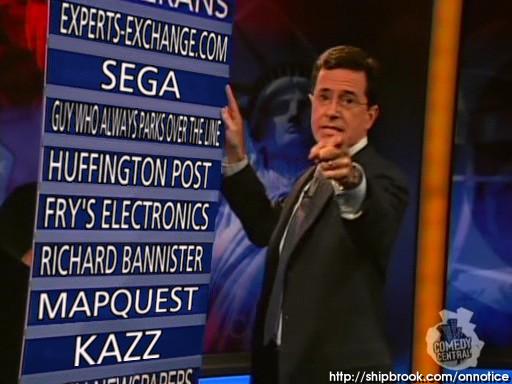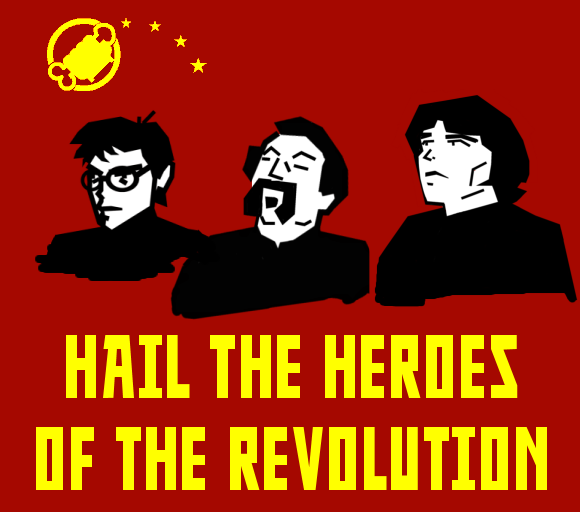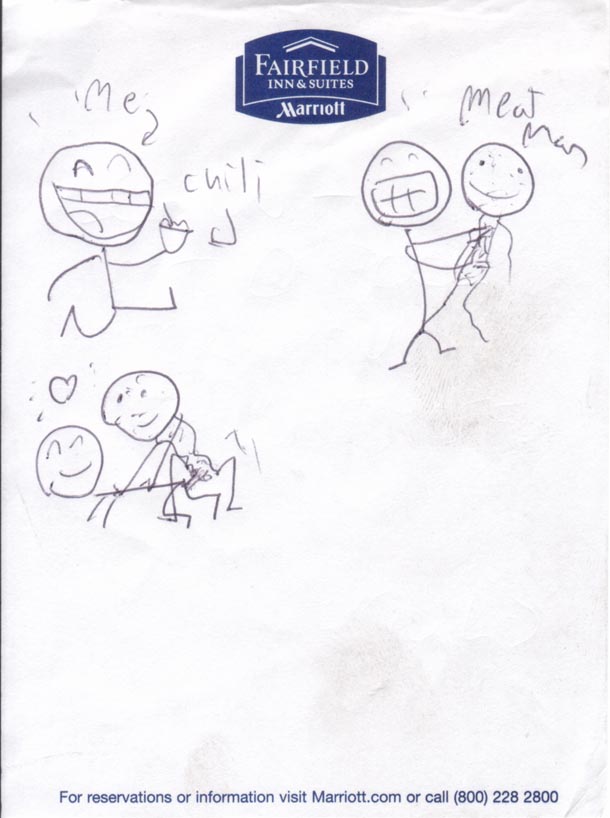I used to be a forum moderator.
It sucks. People get pissed off at you any time you do anything and frequently when you don't do things, and most people who do it are volunteers. But somebody's gotta do it, or the community goes to shit.
I think I did a pretty good job, on the whole, but as with anything in life there are things I look back on and think "Yeah, I could have handled that better."
My biggest regret is getting played by "polite" bigots.
It's an old, old game — somebody says something racist, or misogynistic, or homophobic, but phrases it "politely". Somebody else tells them to go fuck themselves. Moderators punish the second person but not the first.
I'm embarrassed to say that I fell for that one. More than once.
I think there were a few different justifications for it in my head, not just the "polite"/"impolite" contrast. I think that part of it is, a lot of us, myself very much included, said some pretty regrettable things when we were younger, stuff we're not proud of when we look back on it, and we like to think that we've learned to be better. And I saw myself in some of those people saying offensive shit — they just need to learn better; we need to talk to them like they're reasonable people and they'll change. But how will they ever learn if nobody bothers to tell them why what they're saying is wrong? If they open their mouths and all they get is "go fuck yourself," they're just going to get defensive and not consider why they're in the wrong.
I also think I may have had some notion of "neutrality" in my head, this idea that a moderator's job is to treat everybody equally regardless of how you feel about them, that led me to overcorrect and defend people whose views I didn't like more than people whose views I did. To try to correct for my own bias, you know? In much the same way that "liberal media" try to correct their liberal bias by spending hour after hour interviewing Trump supporters in diners.
Point being, I was a chump. The trolls played me. There is no such thing as polite bigotry; bigotry is inherently impolite, and "go fuck yourself" is a justifiable and proportionate response.
And hey, maybe some of those bigots will learn, will grow and change. But most of them won't. Most of them will just keep on being abusive and actively making the community worse. And by letting them do it, you're part of the problem.
I wish I'd banned more people.
Ars Technica is a community like that. A community which I've been a part of for years, where I often find interesting conversation on a variety of topics with knowledgeable and insightful people and where I don't think I'll be hanging around anymore because moderation policy actively and aggressively protects "polite" bigots and it's become clear to me that this isn't an accident, it's a philosophy.
I made the decision after seeing that another community member, Snarky Robot, had quit after a conversation with the forum moderator where the mod said outright that it's unacceptable to call someone a liar even when they're lying.
I like Snarky Robot. I consider him a friend. And he's exactly the kind of person you want in an online community. I don't always agree with him and we've butted heads a time or two but he makes me think; he's smart and thoughtful, he knows his shit, and he gives a fuck.
And I disagree with him about one thing here: I think he's putting too much blame on Ars Technica's moderator (singular; they only have one mod for comments on front-page articles, which is a problem in itself). The mod isn't the problem; it's become quite clear, over years of these conversations, that his moderation priorities reflect the site owners'.
I've been concerned, for years, about the mod's tendency to privilege "polite" bad-faith posters but punish people who call them out. I've talked to him about it, and up until now I always felt like maybe I could change his mind, get him to understand. Something about the "you can't call a liar a liar" conversation finally hit me, in a way that the time he said "Ars is not a queer space" or the time he said "so you can be a bigot if you're polite [...] yes, sort of" didn't but probably should have.
Fuck, I've gone and done it again: I thought I could change somebody's mind through rational dialogue, when I should have realized a long time ago that it's never gonna happen.






